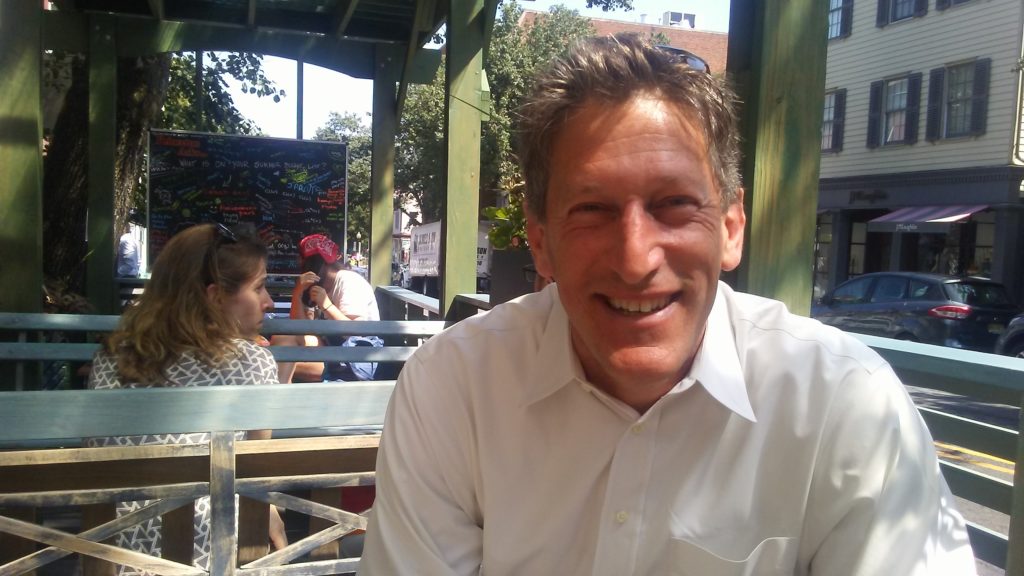UNCHECKED INDEPENDENT GROUPS MAY RELEGATE CANDIDATES TO BEING SPECTATORS OF THEIR OWN CAMPAIGNS

How long before spending by independent, outside groups overwhelm spending by the candidates themselves?
And once that happens, will independent groups also dominate political messaging?
The answer to the first question is that it is already happening, both in New Jersey and nationally.
In New Jersey, independent groups have outspent candidates in at least one legislative district race. During the election of 2017, $14.4 million was spent by independent groups in District 3. The candidates spent $4.3 million, or more than $10 million less than outside groups.
This trend has been happening even more at the federal level. What happens federally always filters down to the states.
According to the Center for Responsive Politics, independent, outside groups have outspent congressional candidates in 48 contests since 2010.
The Center notes that in 16 congressional races last November, independent groups outspent Senate and House candidates. In seven Senate contests and nine House races, independent groups outflanked candidates in terms of money spent and presumably messaging. These were in mostly competitive contests.
Two such contests were in New Jersey. Independent spending surpassed candidate outlays in showdowns over the 3rd and 7th Congressional district congressional seats.
Outside group spending in New Jersey has trended upward since 2009.
In New Jersey, overall spending by outside groups during the legislative elections of 2017 reached $47.5 million, only to be surpassed in last November’s congressional contests when independent groups spent $49 million.
Without legislative changes, more races will be overwhelmed by independent spending, and at all levels of the State’s electoral politics.
Previous columns have mostly focused on the impact independent groups have had on the State’s political party system.
As noted, the effect on political parties has been substantial. Since 2005, spending by State party entities declined by 32 percent and by county party committees by 26 percent.
Meanwhile during that same 12-year period, 2005-2017, independent group spending spiked by 11,458 percent.
While it is important to offset independent group influence by strengthening parties, it is equally important to protect the viability of candidates.
Pending state legislation designed to boost party spending and reduce independent spending will help prevent outside groups from usurping control of candidate campaigns, including their messaging.
Currently, the rate of growth in independent group spending threatens candidates in the same way it does political parties.
Candidates are highly regulated under New Jersey law. Unlike independent groups, which have no limits on contributions made to them, candidates are subject to contribution limits.
Moreover, candidates are subject to registration and disclosure. Under current law independent groups in general are not required to register or disclose their activities.
Only when outside groups expressly support or oppose candidates or ballot questions are they required to disclose expenditures, though not their donors.
Independent groups are less accountable and can be more reckless in their advertising, often underwriting ads that are misleading and, in some cases, false.
Candidates, who are required to provide disclaimers on their advertising, must be more responsible and careful in their messaging.
For candidates to lose control over their campaigns and their messaging would be harmful to the integrity of the state’s electoral process.
That is why it is important to offset the influence of independent groups relative to candidates in the same way as to political parties.
Two pieces of legislation containing ELEC recommendations would accomplish both goals. The bills are S-1500 Singleton [A-1524 Zwicker] and S-1479 Singleton [A-3462 Zwicker].
Taken together, these bills would hopefully reverse the growth of independent groups, bolster candidates, strengthen political parties, and simplify and strengthen pay-to-play laws.
Jeff Brindle is the Executive Director of the New Jersey Election Law Enforcement Commission.
The opinions presented here are his own and not necessarily those of the Commission.





